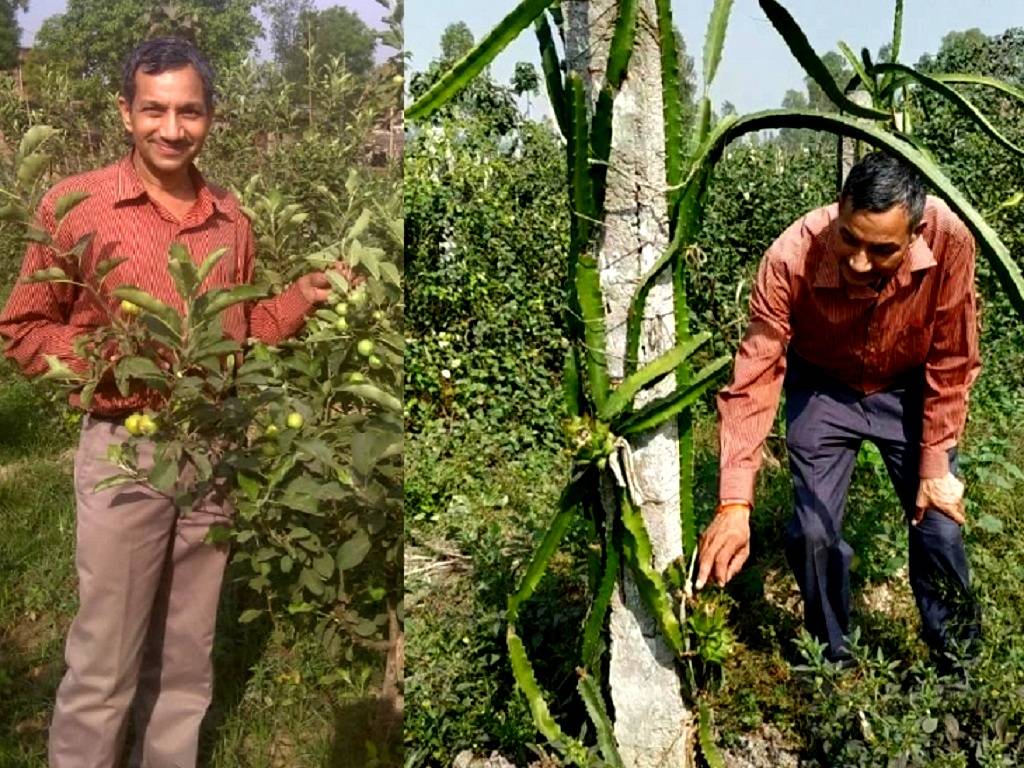
"Retired life is the finest time to pursue one's passions," says Harish Chandra Singh, a native of Uttar Pradesh's Ambedkar Nagar. He retired from the Army as a Colonel in 2015 and now spends the majority of his time farming different varieties of super food, including chia seeds.
Certain food items are thought to offer extraordinary health benefits. When Harish decided to start farming, he wanted to experiment with cultivating super foods on his acreage in Barabanki. These crops are not widely available and are costly.
On his 4-acre farm, Harish mostly plants chia seeds. They were initially known as Salba chia or Mexican chia, which are the edible seeds of a blooming plant in the mint family they were first made popular in Mexico and have several health benefits.
They lower blood pressure, reducing the risk of heart disease. They are high in vitamins, minerals, and antioxidants and are widely farmed in China, Argentina, Bolivia, Ecuador, and Peru.
"Chia seeds are quite expensive, which is why I began cultivating them. It also takes less time to grow and the seeds are readily available," Harish adds.
The seeds are planted in October, exactly like wheat, but they are ready for harvest a month ago. "It costs around Rs.75000 per bigha (61 cents) to produce chia seeds and one may make up to Rs.2 lakh from it," Harish adds about profitability. The cost of one kilogram of chia seeds in the online market is between Rs.1500 to Rs.2000.”
Chia seeds are widely popular in India due to their health benefits.
The product is in high demand and Harish believes that farmers would gain greatly if it is grown locally across the country.
Making a Case for Super Foods
Apart from Chia seeds, he also plants green apple, dragon fruit, black wheat and plums. On his farm there are 500 apple trees, 400 of which are green apples and 100 of which are red apples. Apples are often produced in chilly climates but Harish proved that they can be grown in arid regions such as Uttar Pradesh.
When the majority of local farmers chose to produce conventional crops, some of them, like Harish, experimented with these crops and was successful.
“Let’s take the example of black wheat. You sell conventional wheat at a maximum price of Rs.15 per kg, whereas black wheat costs Rs.100 per kg. Growing more such crops will also help in reducing the price. It makes the product affordable to everyone,” Harish appeals to his fellow farmers.
He believes that farmers should continue to experiment with agriculture. Only through experimentation, he claims, will farming be considered a profession. "Today, experiments are being conducted in every sector. So why should agriculture be left untouched?" asks Harish, who also serves as the District Sainik Welfare Officer of Sultanpur.
He also sees this as an opportunity to attract young people to farming. "Our country is reliant on other nations for super food supply.
We may become more self-sufficient by nurturing them. The potential of entering a worldwide market will attract more young people to this field," he says.
He aims to produce more super food varieties in the coming years. "With the exception of land availability, there are no major concerns in farming," he concludes.
If you are interested in super foods farming, get expert advice from Harish Chandra Singh on 8146466446.











